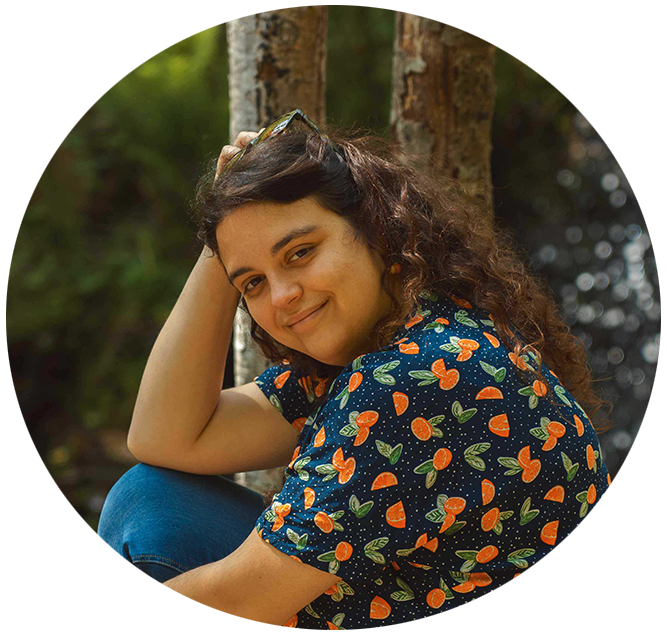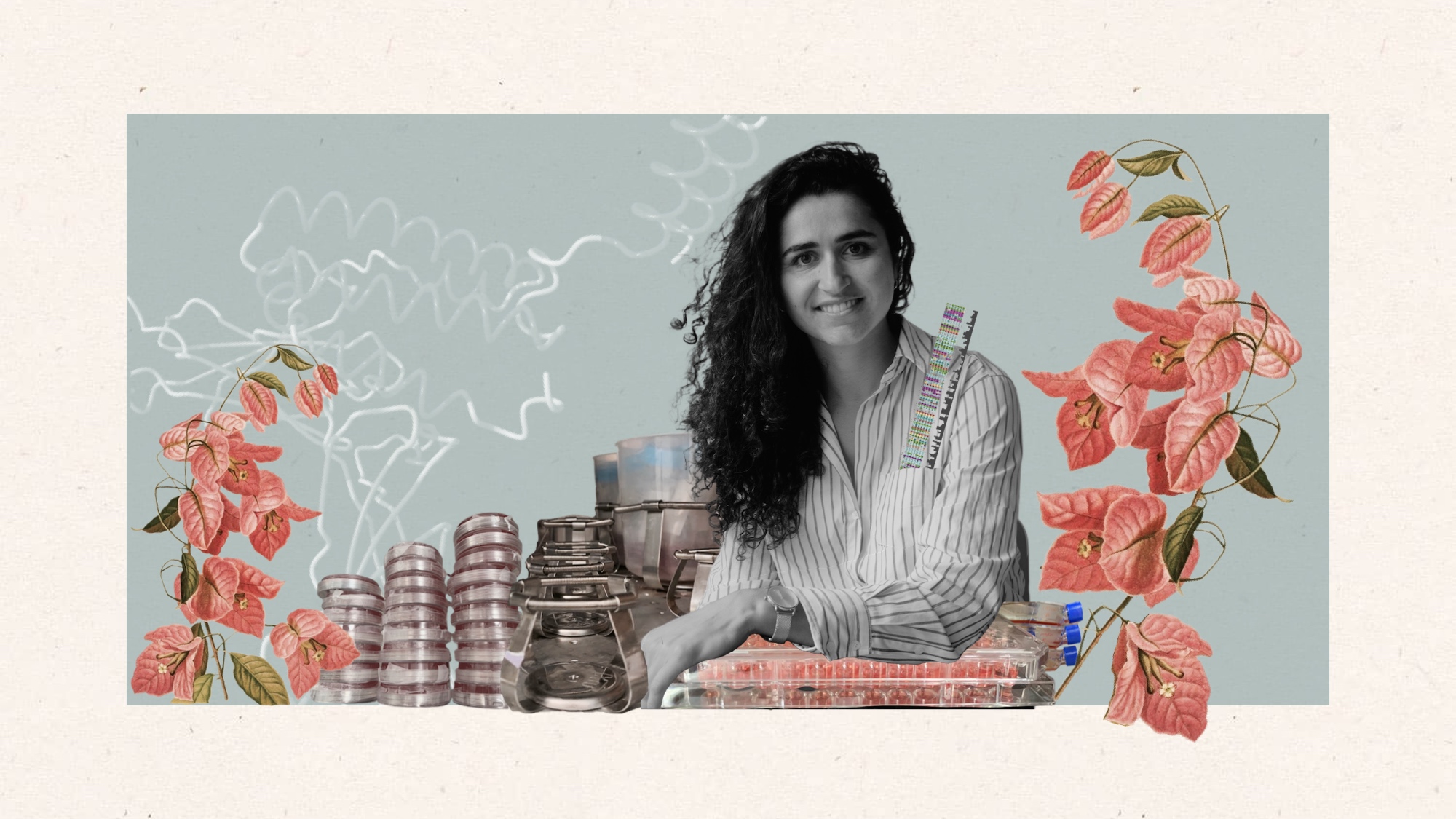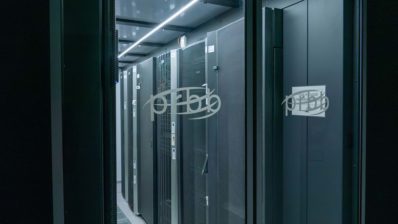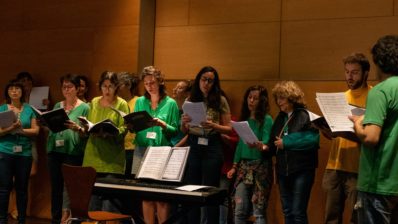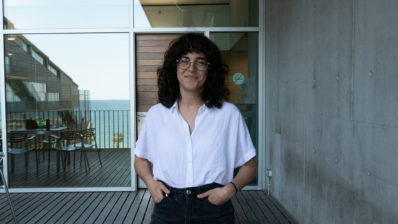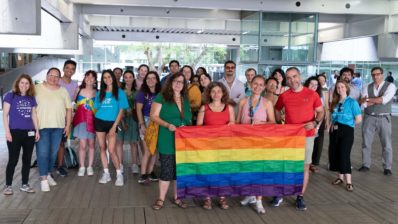Ariadna Montero-Blay is a young researcher who just did her postdoctoral stage in the Biological Systems Design research group at the Center for Genomic Regulation (CRG) and who is now making a turnaround in her scientific career by starting a spin-off company.
Since she was a child, and until she started studying at university, Ariadna was a professional swimmer. And although she would have liked to be an elite athlete, “in this country, it is very difficult to get funding to become a professional sportsperson unless you play soccer,” she says. Even so, she loves the sport and continues to practice it in her free time outside the lab.
He landed at the CRG at a “very sweet moment”, just when Luis Serrano‘s team had recently finished fully characterizing the Mycoplasma bacterium. This allowed her to develop her doctoral thesis on the use of this organism for the treatment of lung diseases. And all the work done during her thesis and in the following years has helped her to establish a spin-off company.
The new company will be betting on the engineering of cytokines, essential proteins in the immune response. “Natural selection has not made these molecules very potent, but rather dynamic, so that they can deploy their potential up to a certain point and then return quickly to an inactive state, to be able to control the immune response. Our technology platform will allow us to design more potent molecules that could be useful as new therapeutic targets”, says Ariadna.
“Complex problems must be faced from different points of view and there are many people who contribute indirectly to science”
Ariadna Montero, CRG
Ariadna has always liked the idea of helping others and believes that through both research and entrepreneurship and the creative freedom they offer her, she can do so. And in addition to the whole team behind the new company (staff with diverse profiles: researcher, bioinformatician, biotechnologist, consultant, etc.), Ariadna has had the opportunity to be trained in business, which she has found very enriching.
“Changing the system is complicated and we still have a long way to go”
It is well known that sometimes a scientific career gets in the way of a researcher’s personal life. When Ariadna started her career, it was very difficult for her to find a balance between her personal and scientific life, but time and experience have allowed her to enjoy her free time more. Likewise, she has very clear ideas: although more and more centers are implementing policies against gender inequalities, there are still many unresolved issues, especially at the highest levels.
We encourage you to get to know her a little more: keep reading her interview!
You can also access the rest of the articles of the series “portraits of science” in this link.
Is a scientist born or made?
In my case, curiosity, the hunger for knowledge and learning, has been fostered since I was very young. At home and at school. At the time of choosing a career, I was hesitating between medicine or biotechnology and either of the two branches continues to interest me. So now I try to do my bit to solve needs not covered by medicine from science.
What is your field of study?
Synthetic biology, a branch of science that engineers biological systems to explore solutions that do not exist in nature. In our particular case, we engineer molecules that orchestrate the immune response to be more potent, less toxic and with fewer side effects.
What sparked your interest in science and your specific field?
Technology has allowed medicine and science to progress incredibly in the last 25 years. When I was born no organism had ever been fully sequenced, and today this is day-to-day life in a laboratory. This progress has also encouraged medicine to become more and more personalized for each patient. In our particular case, we have fine-tuned the technology and the way to design molecules so that, with the right geometry and specific modifications, they can evolve into more optimized forms that nature has not yet explored.
I have always been fascinated by the complexity of the immune system, and being able to focus on exploring how these improved molecules can intervene in immune diseases is both a challenge and an opportunity to learn new things every day.
What kind of student were you as a child?
Talent is nothing without work. I have always been very alert, but with a lot of daily discipline.
What would you be if you were not a scientist?
Definitely a medical doctor.
If you could travel in time and work in the past or the future, which would you choose?
I would like to travel to the future and be able to proudly see how, by working together globally, we can progress to places unimaginable today.
How would your peers describe you?
There is one word that everyone uses to describe me: determined. I recognize myself as such, I always like to set goals and strive and work to the best of my ability to achieve them.
What would you like to add to the phrase “finally achieved…”?
“… thanks to the work of an incredible team and to all the knowledge produced up to then that has allowed to lay the foundations to be able to achieve it”.
Which preconceived idea about researchers do you think is true? And which is totally wrong?
We scientists are normal people, without extravagance. It is an interdisciplinary environment, where you need curiosity, work and discipline and you can come from many branches (physics, mathematics, biology, food technology, biomedicine, medicine, engineering…). We are definitely not all day long doing experiments in a white coat as many people imagine us doing.
What has been your best failure?
My first application to do a PhD in England was not successful. I was very upset at that time, but now I am very happy, I was not mature enough at that time and then some great opportunities came along that got me to where I am today.
What is the best advice you have been given?
To be productive in science, you have to have a life outside the lab.
Can you share a scientific quote or joke?
“Science never solves a problem without creating ten more”.
Who is your favorite scientist?
I would like to give visibility to Katie Bouman. At 30 years old, this woman had led the team that has developed the algorithms used in the first visualization of a black hole in 2019, an unprecedented milestone. A young woman, leader in the field of ‘machine learning’ and computing – fields traditionally dominated by men – in one of the world reference centers, the California Institute of Technology. Undoubtedly a reference to be followed by all of us.
Can you recommend… a book?
L’Élégance du hérisson (The elegance of the hedgehog).
… a song?
“All the work”, by Amber Mark
… an artist?
Fuel Fandango
… a movie?
Hidden Figures (2016)
… a Twitter account worth following?
… a digital media outlet?
The “Lonely Pipette” podcast.
Thank you so much Ariadna and best of luck in this new adventure!
